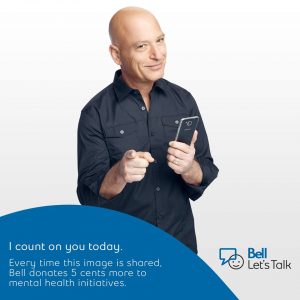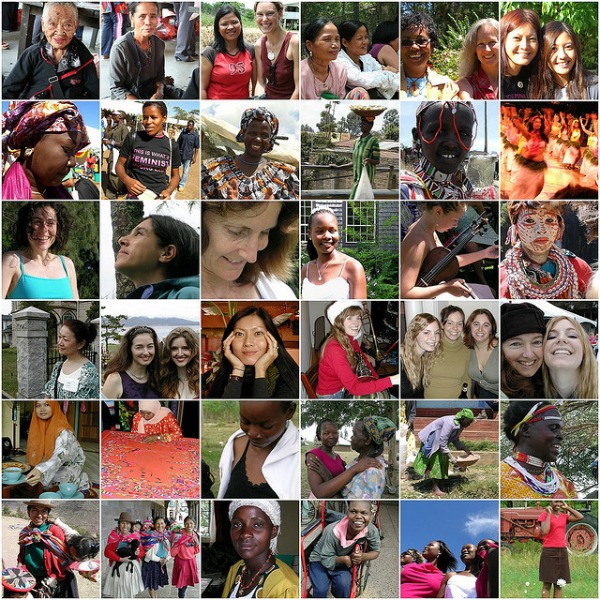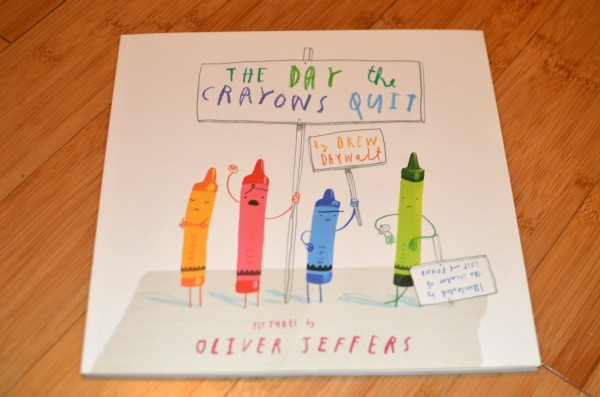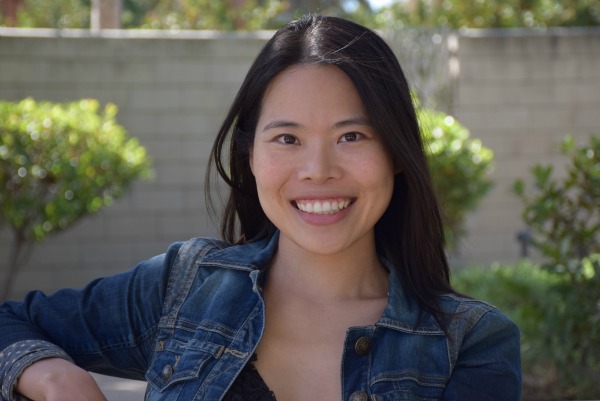
by Kirsten Doyle (Canada) | Jan 27, 2016 | 2016, Mental Health, Mental Illness, North America, Teenagers
 About a week before Halloween last year, a teenage boy named Joshua committed suicide. He had graduated Grade 8 at my son’s school just four months previously, and in September he had started attending the local high school across the road. Everything was going well. He was adjusting to high school and making new friends, and he was happy.
About a week before Halloween last year, a teenage boy named Joshua committed suicide. He had graduated Grade 8 at my son’s school just four months previously, and in September he had started attending the local high school across the road. Everything was going well. He was adjusting to high school and making new friends, and he was happy.
Except he wasn’t.
About six weeks after the start of the new school year, Joshua’s younger brother Tommy needed help with his homework. He knocked on Joshua’s bedroom door and went in, expecting to see Joshua hard at work on his own homework. Instead, Tommy saw the body of his brother hanging from the curtain rail by a belt.
Nobody knows what drove Joshua to such a tragic extreme. He never spoke of any crises, there was no bullying that anyone was aware of, and he seemed to be fitting in well at his new school. In the absence of any other answers, Joshua’s family are slowly arriving at the conclusion that this was a case of teen depression that was never detected.
What makes teen depression so hard to identify is that so many of the symptoms and warning signs are seen as just a part of being an adolescent. As young people experience the firestorm of pubescent hormones, they start to speak and act differently. They become self-conscious about their bodies, they display the infamous “teenage attitude”, they fight all kinds of internal battles as they try to figure out who they are. Self-esteem takes a knock, they may become withdrawn, aggressive or both, and they start to guard their privacy more closely than before.
Yes, all of these things are typical teenage behaviours. But they are also typical behaviours of people experiencing depression.
It creates a minefield for parents, who have to balance respect for their child’s growing need for privacy with enough vigilance to know when something is wrong.
The Canadian statistics surrounding youth and mental illness are deeply troubling:
- Up to 20% of Canadian youth are affected by a mental illness
- Canada’s youth suicide rate is the third highest in the industrialized world
- Suicide accounts for 24% of teen deaths in Canada – the second leading cause of death in this age group
(Source: Centre for Addiction & Mental Health)
So what can we as parents do to keep our children safe from the ravages of mental illness? How do we tell if a teen is just being a teen or if there is something else going on? I did an informal survey of parents, teachers and mental health practitioners, and this is the advice they had to offer:
- Create open lines of communication with your children from as early an age as possible. If they grow up knowing they can talk to you about anything, they will be more likely to approach you if something is wrong.
- Make mental health a topic of conversation in your household, just as you talk about physical health. You encourage your kids to tell you if they are not feeling physically well – the same should happen if they are not feeling mentally well.
- Allow your teen to have privacy, but establish an understanding that his or her privacy only goes so far. Social media accounts should be set up under your supervision, and you should know the passwords.
- Ensure that your teen has access to a trusted adult apart from you. Every adolescent has things that they are not comfortable talking to their own parents about, but they still need guidance on those things. It could be an aunt or uncle, a teacher, or a family friend.
- Watch out for changes in behaviour patterns. It is normal for teens to go through periods of being irritable or emotional. If it lasts for a longer time than usual, or if it is accompanied by changes to eating or sleeping patterns, there might be something going on.
- If your teen starts to wear clothing that doesn’t make sense – such as long sleeves in summer – they may be hiding the marks of self-injury.
- When in doubt, simply ask. Many teens struggle alone with depression or anxiety because they simply don’t know how to talk about it. All they need is for the conversation to be opened.
Teen depression – or any mental illness – is very frightening for the teenager, and for the loved ones. The bad news is that right now, mental health services are only being provided to one in five Canadian kids who need them – mostly because the need is not being identified. The good news is that in the vast majority of cases, getting help can make a huge positive difference in the lives of these kids.
How do you approach discussions of mental illness in your family? Have you ever had to seek treatment for a child or a teenager suffering from a mental illness?
Today, January 27th, is Bell Let’s Talk day in Canada. For every tweet using the #BellLetsTalk hashtag, and for every Facebook share of the image in this post, Bell Canada will donate five cents to mental health initiatives.
This is an original post to World Moms Blog by Kirsten Doyle. Image courtesy of the Bell Let’s Talk campaign for mental health awareness.

Kirsten Doyle was born in South Africa. After completing university, she drifted for a while and finally washed up in Canada in 2000. She is Mom to two boys who have reached the stage of eating everything in sight (but still remaining skinny).
Kirsten was a computer programmer for a while before migrating into I.T. project management. Eventually she tossed in the corporate life entirely in order to be a self-employed writer and editor. She is now living her best life writing about mental health and addictions, and posting videos to two YouTube channels.
When Kirsten is not wrestling with her kids or writing up a storm, she can be seen on Toronto's streets putting many miles onto her running shoes. Every year, she runs a half-marathon to benefit children with autism, inspired by her older son who lives life on the autism spectrum.
Final piece of information: Kirsten is lucky enough to be married to the funniest guy in the world.
Connect with her on Facebook, Twitter and Instagram.
Be sure to check out her YouTube channels at My Gen X Life and Word Salad With Coffee!
More Posts
Follow Me:




by Meredith (USA) | Jan 22, 2016 | 2016, Advice, Awareness, Communication, Health, Kids, Mental Health, Mental Illness, Motherhood, North America, Parenting, USA, World Motherhood

I don’t ever remember not feeling this way. I just know from an early age that I felt things a little deeper than my other friends or family. My feelings could be hurt so easily, and when I was little, I remember crying for days after my Grandma would leave from a visit because I missed her so much.
As I got older and went into high school, I still felt things very deeply, but didn’t want others to know if something bothered me. I would cover it up in front of others and cry when I would get home. Which sounds like most teen age girls, I know. But, this was a little different. I would try to cover up my feelings of inadequacy and then my feelings turned to anxiety over whether other people would know how sensitive I really was.
Something would happen during the day and it would stay with me for days afterward. I would think about it over and over and then the anxiety led to feelings of such sadness and it seemed like a pit I could never get out of. My parents noticed that I was sad a lot, and they did talk to me. I know they cared, but it was like nothing could take away the anxiety and sadness. They thought I was just a teenage girl with overactive hormones.
In college, I studied hard and tried to be the “good girl”. I knew I wasn’t perfect, and I tried so hard to cover up my imperfections. By this point, I was really good at covering up my true feelings of how I felt inside. I worried obsessively about almost everything and doubted myself in the process. I could go for days without eating because my stomach was in knots. Exam time was the worst. I would go over and over in my head what I put for answers. I couldn’t stop thinking about it, and that obsessive worrying led to such sadness that it was hard to even get out of bed some days.
I remember my first job out of college and coming home so exhausted that it was all I could do to wash my face and roll into bed at night.
I remember looking in the mirror and wondering what people would think of me if they saw me just like I was…red eyes, bags underneath them, my complexion broken out…would people really want to see the real me…or the “me” I show to them everyday.
I worried so much about everything being perfect in my classroom that some evenings, I would have to force myself to go home because I probably could have stayed all night to make everything just right. Right about that time, a new song came out on the radio by P!ink called “Don’t Let me Get Me”. I remember some of the lyrics to that song, “Don’t let me get me…I’m my own worst enemy.” I had never heard a song describe so perfectly how I had always been feeling inside.
Why was I so critical of myself? Why could I never cut myself a break?
At about the same time, I remember talking with my mother on the phone and pouring my heart out to her. She suggested that I should go and talk to someone and maybe I would feel better about things.
I did go ahead and talk with someone and discovered that I did suffer and probably had been suffering from anxiety and depression for most of my life. I remember feeling so ashamed of hearing her tell me that. Wasn’t that a sign of weakness if I couldn’t just will myself to be happy?
To make a VERY long story a bit shorter, I fought the idea that I had anything wrong with me for a few years until one day when my husband came home from work, I just cried in his arms for almost an hour and I could see in his eyes he didn’t know what to do. I knew it was time for me to really try to take control of this thing that seemed to be taking control of me. After coming to that point, I decided that it was time to face what I had been running away from for so long. With some help, I learned how I could manage my anxiety better which also helped with my depression.
When I stayed home with my children and stopped teaching, I poured my all into being a mother. I was and still am so very happy that I was able to become a mother to two amazing human beings. But, it is still a struggle with myself each and everyday to keep my nagging anxious thoughts at bay and not let them overwhelm my mind. Now that I know what it is, it is so much easier to face it.
Then, a few weeks ago, my seven year old daughter came home from school and we were talking about her day and she told me that she thought she hadn’t done well on a test at school. I asked her why and then she started to cry and told me it was because she wasn’t as smart as the other children in her class. I told her that of course she was just as smart or smarter than those other students and that she should know that.
She said, “No, I don’t. I always feel like I am not as good as them.”
OUCH!!!! That struck a chord with me. How had this happened? I was supposed to be the “good” mom. I had never once told my daughter that she wasn’t good enough. In fact, we had done just the opposite. My husband and I have actually always been both her and my son’s personal cheerleaders. Where did this come from? I gave her a big hug and told her not to worry about her test and that it would all be fine. She had her snack and went to change her clothes. As she walked away, I got tears in my eyes. I know part of growing up is having feelings of not being good enough, but I also know how it feels to carry that feeling with you your whole life. That was not what I wanted for my daughter.
That night after the kids went to bed, I told my husband what she had said and other things I had noticed that made me worry that she was feeling low about herself. He said, “Have you looked in the mirror? She is a little you.” My husband has always been my cheerleader, and can always see the good in me even if I don’t see it. And, I know he always tells me the truth even when I may not be ready to hear it.
Over the next few days, I thought about what he had said and how I had felt growing up. I was determined that I would do everything in my power to help my daughter to not feel that way. When I was young, no one really ever talked about feelings of depression or anxiety. It was just attributed to people being too soft or high spirited.
Today, even though it isn’t always openly talked about, we can now talk about anxiety and depression without as much stigma being attached to it. My hope is that my daughter and my son do not have to struggle for years because people are too embarrassed to talk about it. I hope that my children do not have to go through what I went through.
I know this post may be a little too personal for some, but I am hoping that we, as mothers, take notice of our children if we think they are exhibiting signs of increased anxiety or depression. It can start young or later on and maybe not all for some. But, if your child had a heart condition or broke a limb, you would do whatever you could to help your child. Talking about depression or any other mental illness needs to be the same thing.
My hope is that by writing about this, it will help keep the dialogue going that seems to be starting to rumble in recent years about mental health. People who are suffering from mental illness are truly suffering inside and they need to know that is okay to reach out to someone without feeling embarrassed or scared.
These days, I have a new favorite song by Mary Lambert entitled “Secrets”. It is such a liberating song (but don’t listen to it around your kids…it does have a little bad language). It didn’t happen overnight, but slowly, I have become a friend to myself. I am seeing that it is okay to be kind and give myself a break. I am consciously choosing to be positive to myself and in the process, I am finding out I am really not so bad.
My hope is that my own positive outlook and self talk will emanate to my daughter. When she looks in her own mirror, I want her to see someone who is strong, beautiful and good. And, if we need to get a little extra help along the way, then so be it. Life is a journey and we are all a work in progress.
Have you or your children struggled with anxiety or depression? How have you handled it?
This is an original post to world Moms Blog by Meredith. you can check out her adventures as living as an expat in Nigeria and her transition back on her blog at www.wefoundhappiness.blogspot.com.
The photo in this post has a creative commons attribute license.
Meredith finds it difficult to tell anyone where she is from exactly! She grew up in several states, but mainly Illinois. She has a Bachelor of Science degree in Elementary Education from the University of Illinois at Champaign/Urbana which is also where she met her husband. She taught kindergarten for seven years before she adopted her son from Guatemala and then gave birth to her daughter two years leter. She moved to Lagos, Nigeria with her husband and two children in July 2009 for her husband's work. She and her family moved back to the U.S.this summer(August 2012) and are adjusting to life back in the U.S. You can read more about her life in Lagos and her adjustment to being back on her blog: We Found Happiness.
More Posts

by Eva Fannon (USA) | Jan 14, 2016 | 2016, Awareness, Cancer, Girls, Health, Kids, Maternal Health, North America, Older Children, Sex, USA, Vaccines, World Voice, Younger Children

Many of us might hear the word “cancer” and automatically think that such a diagnosis would be a death sentence. This could be based on things we’ve heard, images we have seen portrayed in the media, or perhaps a personal experience – a friend or relative who has been affected by this “c” word. The truth is it greatly depends on the type of cancer…how early it is diagnosed…and whether or not a person has access to treatment.
In the US, January is #CervicalHealthMonth. Today we are talking it about it here because cervical cancer is an international issue and I’m sharing on World Moms Blog because it is an important topic to me, too. More than half a million women around the world are diagnosed with cervical cancer each year and over half of them die from the disease. The majority of these cases and deaths occur in low- and middle-income countries.(1) (more…)
Eva Fannon is a working mom who lives in the beautiful Pacific Northwest with her hubby and two girls. She was born and raised on the east coast and followed her husband out west when he got a job offer that he couldn't refuse. Eva has always been a planner, so it took her a while to accept that no matter how much you plan and prepare, being a mom means a new and different state of "normal".
Despite the craziness on most weekday mornings (getting a family of four out the door in time for work and school is no easy task!), she wouldn't trade being a mother for anything in the world. She and her husband are working on introducing the girls to the things they love - travel, the great outdoors, and enjoying time with family and friends. Eva can be found on Twitter @evafannon.
More Posts - Website
Follow Me:




by Kirsten Doyle (Canada) | Jan 11, 2016 | Advice, North America, Parenting, Social Media, World Motherhood
 My children are part of the first generation for whom social media has always existed. When I was a child, the term “email” hadn’t even been invented yet. For my children, Facebook has always existed and email is regarded as old-fashioned. This has all kinds of implications for kids, of course. We’ve all seen the multitude of reports and studies about what screen time is doing to our kids, how the obesity epidemic is being linked to the explosion of computer-based gaming, and how computers are making new skills emerge as old skills decline.
My children are part of the first generation for whom social media has always existed. When I was a child, the term “email” hadn’t even been invented yet. For my children, Facebook has always existed and email is regarded as old-fashioned. This has all kinds of implications for kids, of course. We’ve all seen the multitude of reports and studies about what screen time is doing to our kids, how the obesity epidemic is being linked to the explosion of computer-based gaming, and how computers are making new skills emerge as old skills decline.
Something that is not talked about as frequently is the impact of social media on parents.
When my mother was raising me and my brother, the only people she could call on for advice or opinions were people she actually knew in person.
If she needed help, she had to either pick up the phone and ask, or go and visit someone. In the event of a child getting sick or injured, she would take us to the doctor, trust whatever the doctor said and get whatever medication was prescribed.
My parenting experience has been vastly different. I have the same supports that my mother had – friends, family members, and especially my mother herself – but I also have the Internet. When my older son was born, I joined a parenting group on Yahoo, and developed a friendship with fellow members that endures to this day (the only difference is that the Yahoo group is now a Facebook group). When my son was diagnosed with autism, I joined an autism parenting group, with the same results.
Both groups are about requesting and receiving advice, sharing funny stories about our kids, and having a safe place to vent on our bad days. Through these groups – and through World Moms Blog – I have developed online friendships that are every bit as real as “traditional” friendships. We rally around each other in bad times, and we celebrate together in good times.
No matter what is going on with my kids or with myself as a mother, I always know that there is someone out there who understands. And if I can’t find someone who has the answers I need, there’s always Google.
There are downsides to parenting in the age of social media, of course. Sometimes I go searching for understanding and find judgment instead. I find stark divisions in the parenting community. I have been criticized for vaccinating my kids. I have seen homeschooling moms viciously attack those who send their kids to school, and vice versa. I was once an uncomfortable online witness to a discussion in which a breastfeeding advocate smugly told a breast cancer survivor that she would be able to breastfeed her newborn child if she “tried harder”.
So yes, ugliness is as pervasive on the Internet as it is in the physical world. But we respond to it in the same way: by trying to counteract the bad with the good, by being supportive of one another and by leaving the ugliness behind.
At the end of the day, I am thankful to have the world of social media at my fingertips as I navigate the mysterious world of parenting. And I am even more thankful that at any time, I can pick up the phone and call the person who muddled through it all without the Internet: my mother.
What differences have you noticed between your mother’s era of parenting and your own? Does social media play an important role in your journey as a mother?
This is an original post to World Moms Blog by Kirsten Doyle of Toronto, Canada.
Photo credit: StartBloggingOnline.com This picture has a creative commons attribution license.

Kirsten Doyle was born in South Africa. After completing university, she drifted for a while and finally washed up in Canada in 2000. She is Mom to two boys who have reached the stage of eating everything in sight (but still remaining skinny).
Kirsten was a computer programmer for a while before migrating into I.T. project management. Eventually she tossed in the corporate life entirely in order to be a self-employed writer and editor. She is now living her best life writing about mental health and addictions, and posting videos to two YouTube channels.
When Kirsten is not wrestling with her kids or writing up a storm, she can be seen on Toronto's streets putting many miles onto her running shoes. Every year, she runs a half-marathon to benefit children with autism, inspired by her older son who lives life on the autism spectrum.
Final piece of information: Kirsten is lucky enough to be married to the funniest guy in the world.
Connect with her on Facebook, Twitter and Instagram.
Be sure to check out her YouTube channels at My Gen X Life and Word Salad With Coffee!
More Posts
Follow Me:




by Eva Fannon (USA) | Jan 8, 2016 | 2016, Awareness, Education, Eva Fannon, Girl Child, Girls, Health, Kids, Motherhood, North America, Parenting, USA, World Motherhood, Younger Children

As my youngest has started to work on learning to read and write in kindergarten, and my oldest lays on the couch for hours lost in a book, I’ve been reflecting about books and reading. A book is so much more than just paper and ink and the binding that holds it together. Books can be entertaining, but most importantly, they teach us new things and help us broaden our understanding of the world we live in. It turns out reading books also does so much more, especially for our children. (more…)
Eva Fannon is a working mom who lives in the beautiful Pacific Northwest with her hubby and two girls. She was born and raised on the east coast and followed her husband out west when he got a job offer that he couldn't refuse. Eva has always been a planner, so it took her a while to accept that no matter how much you plan and prepare, being a mom means a new and different state of "normal".
Despite the craziness on most weekday mornings (getting a family of four out the door in time for work and school is no easy task!), she wouldn't trade being a mother for anything in the world. She and her husband are working on introducing the girls to the things they love - travel, the great outdoors, and enjoying time with family and friends. Eva can be found on Twitter @evafannon.
More Posts - Website
Follow Me:




by World Moms Blog | Jan 6, 2016 | 2015, Maternal Health, Mission Motherhood, North America, World Moms Blog, World Motherhood

As part of World Moms Blog’s collaboration with BabyCenter’s Mission Motherhood™, our World Moms are writing posts on maternal health around the world. In today’s post, To-wen Tseng in the USA writes about meeting mothers at a health clinic in post earthquake Haiti on a trip to Port-au-Prince during her former career as a TV reporter.
“In the past, I jumped from disaster situation to disaster situation to report. I did my job, and moved on to the next story. However, it wasn’t until after I had become a mother myself two years ago, that I began to reconnect to the story of the Haitian mother who sadly couldn’t afford beans.”
Read the full post over at BabyCenter’s Mission Motherhood™!
World Moms Blog is an award winning website which writes from over 30 countries on the topics of motherhood, culture, human rights and social good. Over 70 international contributors share their stories from around the globe, bonded by the common thread of motherhood and wanting a better world for their children.
World Moms Blog was listed by Forbes Woman as one of the "Best 100 Websites for Women 2012 & 2013" and also called a "must read" by the NY Times Motherlode in 2013. Our Senior Editor in India, Purnima Ramakrishnan, was awarded the BlogHer International Activist Award in 2013.
More Posts

 About a week before Halloween last year, a teenage boy named Joshua committed suicide. He had graduated Grade 8 at my son’s school just four months previously, and in September he had started attending the local high school across the road. Everything was going well. He was adjusting to high school and making new friends, and he was happy.
About a week before Halloween last year, a teenage boy named Joshua committed suicide. He had graduated Grade 8 at my son’s school just four months previously, and in September he had started attending the local high school across the road. Everything was going well. He was adjusting to high school and making new friends, and he was happy.










 My children are part of the first generation for whom social media has always existed. When I was a child, the term “email” hadn’t even been invented yet. For my children, Facebook has always existed and email is regarded as old-fashioned. This has all kinds of implications for kids, of course. We’ve all seen the multitude of reports and studies about what screen time is doing to our kids, how the obesity epidemic is being linked to the explosion of computer-based gaming, and how computers are making new skills emerge as old skills decline.
My children are part of the first generation for whom social media has always existed. When I was a child, the term “email” hadn’t even been invented yet. For my children, Facebook has always existed and email is regarded as old-fashioned. This has all kinds of implications for kids, of course. We’ve all seen the multitude of reports and studies about what screen time is doing to our kids, how the obesity epidemic is being linked to the explosion of computer-based gaming, and how computers are making new skills emerge as old skills decline.






